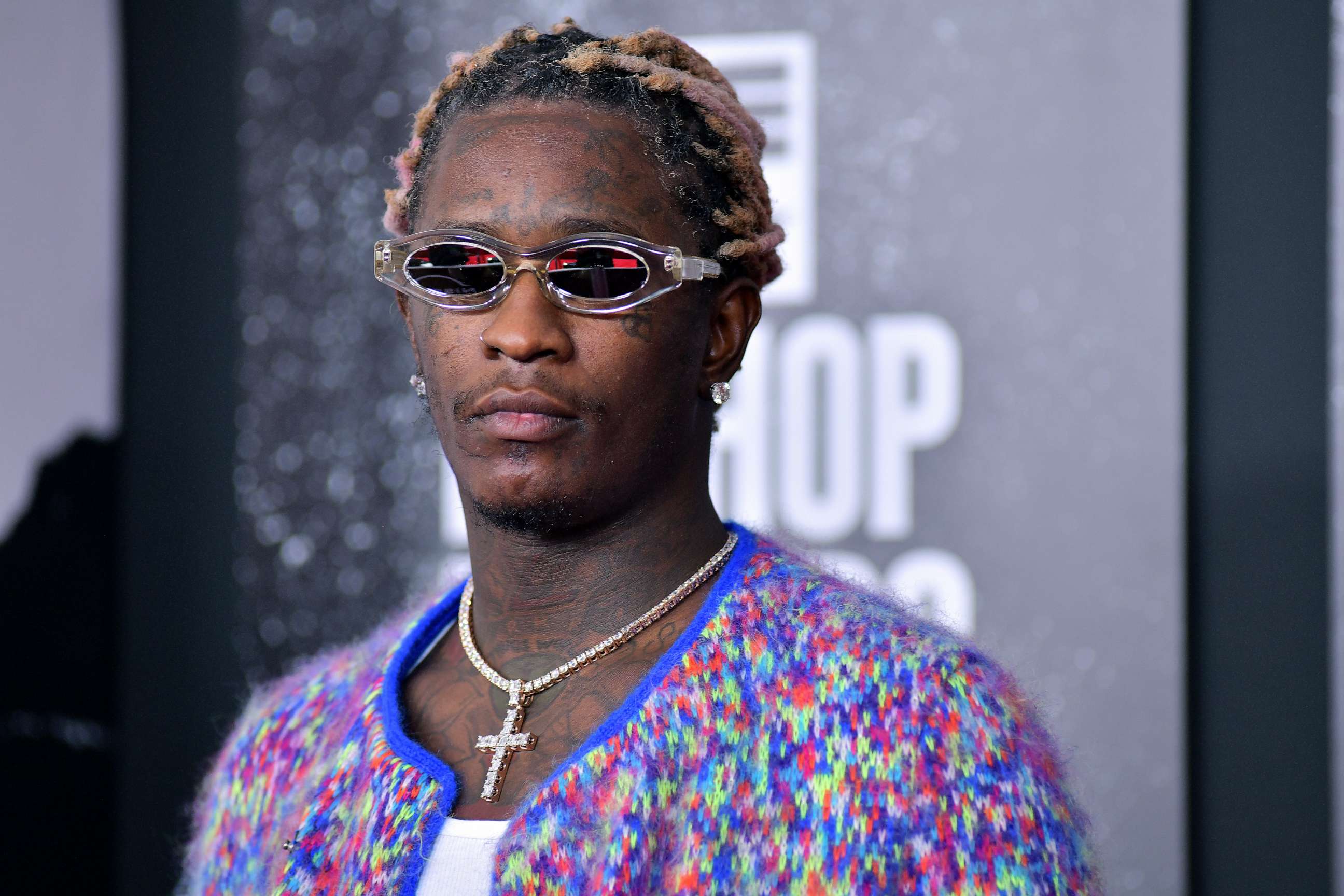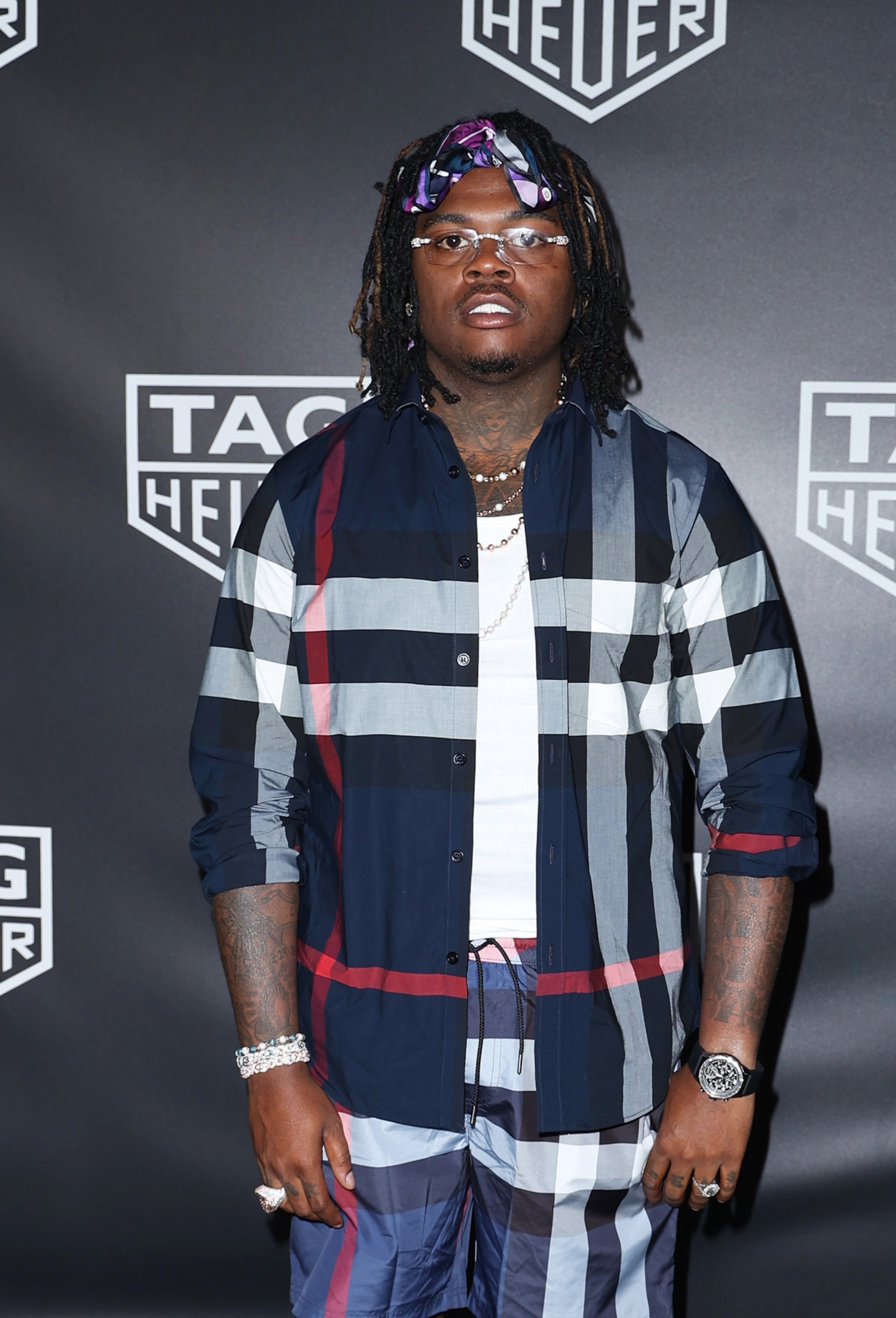Young Thug's attorney asks judge to stop prosecutors from using rapper's lyrics as evidence
The rapper pleaded not guilty to gang-related charges.
Young Thug's legal team filed a motion asking a Georgia court to prevent prosecutors from using the rapper's lyrics as evidence against him when his case goes to trial next year.
The Grammy-winning rapper, whose legal name is Jeffery Lamar Williams, was arrested on gang-related charges in May and is now facing a total of eight counts in a sweeping grand jury indictment in Fulton County, Georgia.
Brian Steel, Young Thug's attorney, argued in a motion obtained by ABC News that the prosecution's use of the hip-hop star's lyrics in this case is "racist and discriminatory" because it could prejudice a jury against his client and prevent him from having a fair trial – a right that is protected by the Sixth Amendment in the U.S. Constitution.
The motion argues, in part, that "using these lyrics/poetry/artistry/speech against Mr. Williams is racist and discriminatory because the jury will be so poisoned and prejudiced by these lyrics/poetry/artistry/speech as same is unlawful character assassination."
Steel also argued in the motion that the use of lyrics violates his client's Constitutional rights to free speech and due process "and cannot be used as evidence of crime if they are simply connected to music/freedom of expression/freedom of speech/poetry."

The office of Fulton County District Attorney Fani Willis, which is prosecuting this case, filed a motion in response, urging the court to permit the use of lyrics in this case and requested a hearing on the matter.
Young Thug was initially charged with one count each of conspiring to violate the state's Racketeer Influenced and Corrupt Organizations (RICO) Act and participating in criminal street gang activity and was later charged with an additional count of participating in street gang activity, three counts of violating the Georgia controlled substances act, possession of a firearm while committing a felony and possession of a machine gun.
He pleaded not guilty.
"Mr. Williams has committed no crime whatsoever," Steel told ABC News.
Young Thug was among 28 individuals named in the indictment who are allegedly associated with the Atlanta-based Young Slime Life (YSL) – a gang that prosecutors allege Young Thug founded in 2012. But YSL, which is also the acronym for "Young Stoner Life" is also the name of the rapper's label - an imprint of 300 Entertainment. The label is not named in the indictment.
"Numerous gang member defendants have released songs and/or music videos in which they describe their own and YSL's criminal activities," prosecutors argued in the motion obtained by ABC News, defending the use of lyrics in this case. "Some of those statements are alleged as overt acts in furtherance of the conspiracy. Other statements that are not specifically charged in the indictment are similarly relevant and admissible evidence. The State moves generally to admit those lyrics as relevant admissible evidence at trial."
Prosecutors further argued that the use of rap lyrics as evidence is "clearly permitted by precedent from federal and state courts around the nation, and in line with well-established prosecutorial practice in similar cases."
While the use of rap lyrics as evidence in criminal proceedings is common in the U.S., it is a controversial practice that has gained national attention through this case largely due to the star power of Young Thug and Gunna, a fellow Grammy-nominated rapper signed to the YSL label, whose lyrics are used against him as he faces one count of conspiring to violate the state's RICO Act.

Gunna, whose legal name is Sergio Kitchens, has pleaded not guilty.
"Mr. Sergio Kitchens, known as Gunna, is innocent. The indictment falsely portrays his music as part of criminal conspiracy," the rapper's attorneys, Steve Sadow and Don Samuel, told ABC News.
ABC News has reached out to the DA's office for further comment.
Although the scope of the indictment goes far beyond the lyrics, the inclusion of lyrics has drawn criticism from both freedom-of-speech advocates and the musicians themselves, who argue that introducing lyrics into a case with the implication that they are reflections of reality, discounts rap as a form of artistic expression.
Kevin Liles, the CEO of 300 Entertainment, launched a movement to "Protect Black Art" – a campaign that has garnered widespread support from the music industry, including the Recording Academy.
"I will protect Black art like it's my family because it's my family," Kevin Liles, the former president of Def Jam Recordings, previously told "Nightline," adding that to him, this is not just about the lyrics – "our culture is on trial."




